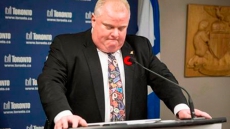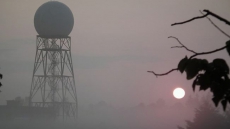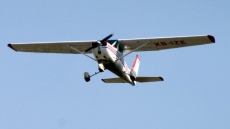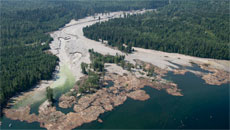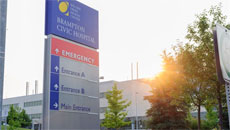Who should get scarce Ebola drugs and vaccines? How should they be divvied up? What paperwork and permissions are needed to allow the products to cross borders and be administered to the sick?
How much of the limited supply should be reserved for clinical studies that are needed to secure licences for these products, so they can be used in future Ebola outbreaks? How much should be saved for compassionate use, say when a health-care worker becomes infected?
These are among the thorny questions nearly 200 experts from around the world will debate over the next two days at a meeting in Geneva organized by the World Health Organization. At least nine Canadians — scientists, public health officials and figures from the biotech community — are taking part.
The meeting follows on an earlier consultation during which the WHO asked ethicists and others if it would be ethical to use unlicensed Ebola drugs and vaccines in this unprecedented outbreak. The group, which met in early August, agreed that it was.
Since then, much planning and research has gone into trying to prepare this group of advisers to answer questions around who should get drugs or vaccines and under what circumstances.
"It's really about making a plan of how we can accelerate both the registration as well as the compassionate use of the most promising of these medicines and vaccines," says Dr. Marie-Paule Kieny, the WHO's assistant director general for health systems and innovation and the point person for this work.
There has been a flurry of activity since the early August meeting. In a field — Ebola countermeasures research — where progress has been painfully slow, suddenly there is movement and momentum.
The Canadian government announced it would donate between 800 and 1,000 doses of an experimental Ebola vaccine to the WHO for use in the Ebola response.
The Biomedical Advanced Research and Development Authority — a division of the U.S. government that funds development of drugs, vaccines and diagnostic tools for public health emergencies — has been scoping out whether additional companies could be used to produce the antibody drug ZMapp.
The U.S. Food and Drug Administration amended a clinical hold on the drug TKM-Ebola, made by Tekmira Pharmaceuticals of Burnaby, B.C., to allow the drug to be used on compassionate grounds, if countries request it.
A Phase 1 human trial of a Ebola vaccine began this week in the United States. A second, involving a vaccine developed by scientists at the Public Health Agency of Canada, is set to begin its first trials in humans within the next few weeks. Kieny has said the WHO would like some safety data on this vaccine before it deploys the doses donated by Canada.
None of these steps will produce sufficient supplies of anything in the short term to extinguish this raging outbreak. But the work should eventually provide some answers about whether any or all of the experimental products work in humans, laying the ground work for future development of badly needed Ebola vaccines and drugs.
As well, they could be used to protect health-care workers, who in this and all Ebola outbreaks pay a terrible toll for their dedication to treating the sick.
"These drugs, even if they are not available — or the vaccines — to really treat the community, if they could at least treat the health-care workers, then they would be willing to go back to work without this fear of being themselves condemned to death," Kieny says.
In at least one case, events have overtaken the planning efforts.
While the experts worked at devising ethics-based options for who should have access to limited supplies of vaccines and drugs, all available supplies of one drug — ZMapp — were snapped up.
There were fewer than a dozen treatment courses of the drug — a cocktail of antibodies devised by scientists at Canada's National Microbiology Laboratory in Winnipeg — in existence when the epidemic broke out. They had been made, at considerable expense, for research purposes. And some of these treatment courses were used in animal studies.
(A study published last week showed the antibodies saved 18 monkeys infected with what should have been a lethal dose of Ebola, even though in some cases treatment was only started at Day 5, when the animals had progressed to severe disease.)
Then in late June two infected American missionaries became the first people treated with ZMapp, initially sharing a single dose. Both survived, with one, Dr. Kent Brantly, reportedly making a surprisingly speedy recovery.
In short order Spain acquired ZMapp for an infected Spanish priest; he died after getting only a single dose of the three-dose treatment course. Britain secured the two remaining doses of that treatment course for a nurse infected in Sierra Leone; he left hospital earlier this week.
Liberia asked the U.S. government for ZMapp for three infected health-care workers; one died, but two have recovered. And that was it for ZMapp, at least until more can be made.
There are hopes, Kieny said, that if production can be ramped up that perhaps 200 doses of the drug could be available by the end of the year.

